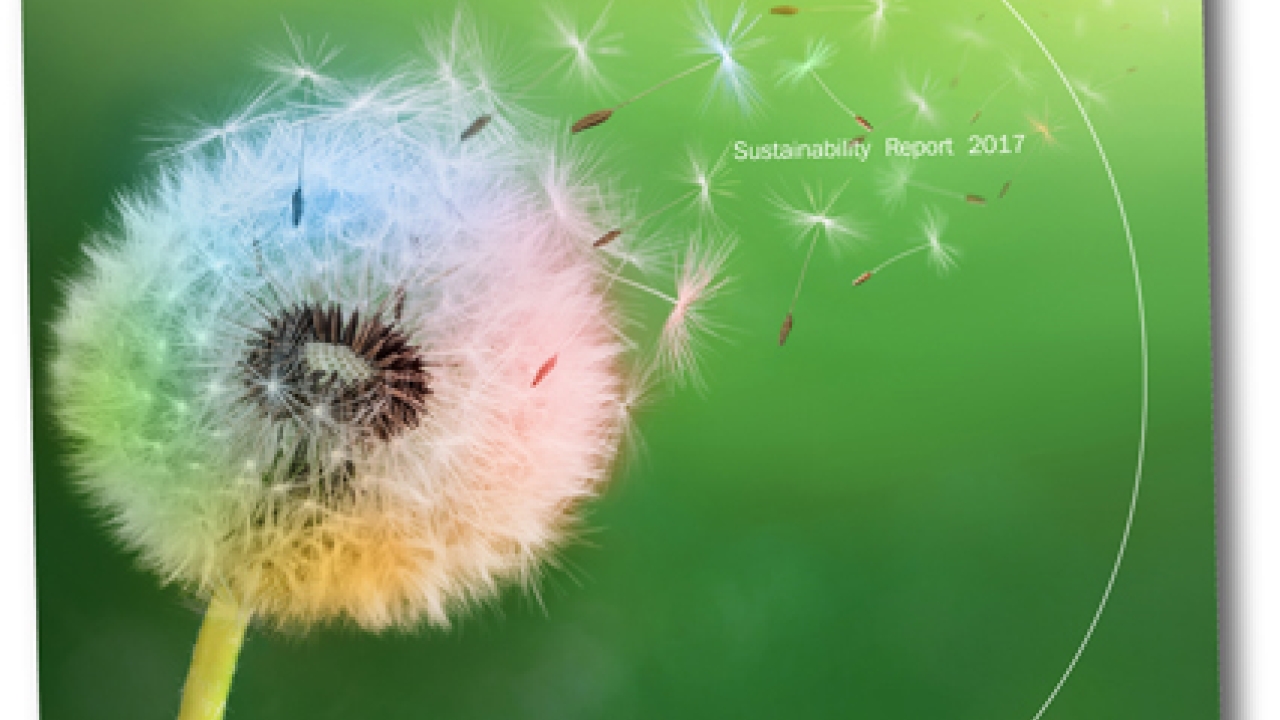Flint outlines sustainability progress
Flint Group has taken ‘important steps’ to measure and reduce its environmental footprint in recent years, with its 2017 Sustainability Report outlining the work that has gone on, and continues, to improve the company’s social, economic and environmental performance.

Aligned to the Dow Jones Sustainable Index, the Flint Group 2017 Sustainability Report outlines its performance in social, economic and environmental concerns, detailing the way in which Flint Group has incorporated sustainable business practices into its daily activities.
In the report, Flint Group CEO Antoine Fady states: ‘Sustainability is deeply engrained in our values and the way we do business. We recognize that maintaining a high degree of economic, environmental and social sustainability is fundamental to delivering value for our stakeholders now and in the long term.’
Work to increase accessibility and understanding of its code of conduct has included face-to-face training and the translation of its policies into more than 20 languages. An e-learning course has been introduced to expedite new employees’ adherence to its code of conduct.
Flint Group’s recent expansion initiatives, such as the creation of its Digital Printing Solutions business unit through the acquisition of Xeikon, have been included in these efforts also. For instance, a new third-party qualification policy has been established as the company seeks to ensure that it only works with third parties ‘who share our values’. 700 third-party partners have been invited to complete an e-learning course focused on its code of conduct. This complements independent background checks of prospective partners and its third-party partner contract, through which partners agree to respect the code of conduct. These efforts are evidenced in Flint Group ceasing to work with around 60 third-party partners in 2015-16, with a further 160 that it has identified to cease working with in 2017. New partners have been identified who ‘meet our requirements’, and consolidate existing relationships.
‘I believe that collaboration will be central to building momentum,’ said Fady. ‘In addition to fostering a consistent approach across all our businesses, we are increasingly partnering with our suppliers to improve the sustainability performance of our raw materials supply chain and uphold rigorous human rights and environmental standards.
‘We stayed ahead of evolving regulations on chemicals, packaging and labelling, and implemented a new health and safety strategy, raising the profile of high impact, low frequency incidents across our organization. Importantly, we have also taken further steps to strengthen our global integrity and compliance culture, including by training all our employees on our enhanced code of conduct and creating a series of robust new policies.’
The report also places an emphasis on Flint Group’s approach to measuring energy, expanding its scope and focus to not only review energy usage but also evaluate the energy intensity to provide a greater depth of understanding and transparency within its sustainability reporting. Last year, and for the first time, Flint Group measured its production intensity per product, a calculation it said can ‘negate any manufacturing fluctuations experienced by the business’, providing an accurate figure in relation to manufacturing performance. The 2016 formulation and baseline target will be used moving forward to measure progress and to help identify where the greatest opportunities lie to make reductions and develop initiatives to drive further improvements.
Russell Taylor, senior vice president of global human resources at Flint Group, and who has leadership responsibility for the company’s sustainability program, commented: ‘We have been encouraged by our achievements to date, stepping up our focus on environmental measurement and reporting, initiating many important improvement projects and working to further embed sustainability practices firmly within the core of our organization. We recognize fully that we are on a journey with so much yet to be done.’
Fady concluded: ‘Looking ahead to 2017 and beyond, we will maintain our strong market focus, developing clear strategies for each segment and striving to exceed our customers’ expectations, while creating value for all our stakeholders by developing sustainable and responsible business practices.’
Download the Flint Group 2017 Sustainability Report here.
Flint Group will present its EkoCure Ancora UV LED low migration ink for food compliant labels and packaging at Labelexpo Europe 2017.
Read the L&L Labelexpo Europe 2017 new product showcase in issue 4, 2017
Stay up to date
Subscribe to the free Label News newsletter and receive the latest content every week. We'll never share your email address.

